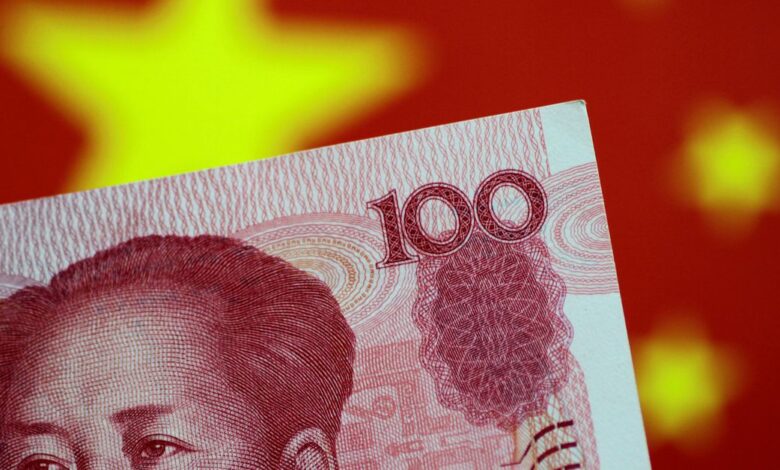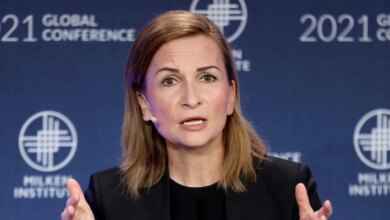EXCLUSIVE China’s regulators tighten scrutiny of FX dealers – sources

A China yuan word is seen on this illustration picture Might 31, 2017. REUTERS/Thomas White/Illustration
SHANGHAI, Sept 29 (Reuters) – China’s regulators are tightening management over the interior workings of its foreign money market, pressuring banks to commerce much less and in smaller ranges, two banking sources instructed Reuters, as a part of a sweeping push to curb hypothesis.
The strikes observe current efforts at curbing monetary dangers that embrace dampening commodity worth rises, banning cryptocurrency transactions and proscribing property hypothesis. They usually carry the marketing campaign deeper into day-to-day operations on the dealing desks of a $30 trillion market.
It’s also the newest instance of scrutiny targeted on international change, which analysts mentioned may be geared toward tightening the leash on the yuan at a delicate time when U.S. policymakers put together to withdraw financial stimulus and China appears poised so as to add extra.
Reuters earlier in September that brokers have dropped foreign money forecasts following regulatory stress and studies the scrutiny of the interbank marketplace for the primary time. Authorities have additionally been hinting that banks and firms ought to put together for volatility.
In current months many banks have additionally withdrawn particular person FX buying and selling merchandise, closing one other avenue for hypothesis.
Not too long ago, representatives of China’s State Administration of International Trade (SAFE) have embedded themselves on foreign money buying and selling flooring from business banks to main state-owned lenders, mentioned the 2 sources at separate market-making banks.
They mentioned the officers stayed for months, far longer than supervisory visits beforehand, and urged them to cost buyer offers quicker and in tighter ranges, or spreads.
The bid-ask unfold is the distinction between the worth the financial institution costs shoppers and worth out there, so narrowing it reduces buying and selling banks’ revenue. It might additionally assist hem the yuan in a tighter buying and selling vary, however on the similar time strikes danger from prospects to the financial institution whereas a deal is being executed.
One supply mentioned the regulator reminded them their position is to maintain issues regular or “smoothen fluctuations with out pushing the yuan to both facet”. They added that regulators had not visited international banks this 12 months. Banks in Hong Kong don’t take part in China’s onshore interbank market.
The opposite supply mentioned they had been instructed to chop volumes to cut back the turnover of interbank trades – as soon as a badge of honour for so-called market makers who present liquidity to one another and the broader buying and selling pool.
“(Now) you get calls from regulators if you happen to commerce an excessive amount of,” he mentioned. Each requested anonymity as they don’t seem to be authorised to speak to the media in regards to the matter.
SAFE instructed Reuters by fax it has “at all times supported” market members in buying and selling “fairly”, and to advertise the integrity, equity, order and effectivity of the international change market.
The scrutiny comes at a fragile time for China’s foreign money, which sits close to multi-year highs however faces headwinds as markets put together for the USA to start tapering pandemic-era coverage help simply as China appears able to step in and ease as its economic system slows.
The Folks’s Financial institution of China has pumped a internet 750 billion yuan ($116 billion) into the banking system since mid-September as markets have been rattled by fears of contagion from a debt disaster at China Evergrande and financial harm from energy cuts.
“Policymakers would slightly keep a loosening bias within the money circumstances, however one side-effect is that an excessive amount of money might immediate hypothesis,” mentioned Ken Cheung, chief Asian FX strategist at Mizuho Financial institution in Hong Kong, noting that’s one thing the newest crackdown would possibly curb.
“The central financial institution has mentioned a number of instances to not guess on foreign money appreciation or depreciation,” he mentioned.
MORE INTENSE
As President Xi Jinping makes his case for a 3rd time period, the nation’s strongest chief since Mao Zedong is driving what some observers describe as a mini revolution, curbing the excesses of capitalism and returning China to its socialist roots.
Crackdowns on tutoring and on tech corporations have unnerved traders and hammered share costs in these sectors. However regulators have additionally been altering the best way markets function.
“(It is) definitely changing into extra intense this 12 months,” mentioned one foreign money dealer at a mid-sized financial institution, noting additional coaching classes, stricter scrutiny from compliance and even chatter amongst friends that was changing into extra guarded.
Since SAFE head Pan Gongsheng warned in June towards laying bets on the yuan’s route, brokers in China have shied away from publishing once-routine foreign money forecasts.
Across the similar time a handful of banks additionally started quietly closing international change buying and selling companies that had let particular person shoppers guess on non-yuan foreign money pairs.
Turnover in such accounts was small and has now all however vanished, with the Financial institution of China , Industrial and Business Financial institution of China , and China Retailers Financial institution amongst these to submit public statements about proscribing entry to commerce.
SAFE mentioned it had not supplied any steering to business banks relating to private international change companies, and nor did the banks present clear causes for his or her selections.
But all used comparable language of their explanations.
Huaxia Financial institution , which mentioned it is going to droop its private FX enterprise in December cited market modifications, whereas ICBC and China Retailers financial institution each mentioned the transfer was obligatory “to reply to modifications in market circumstances.”
Reporting by the Shanghai Newsroom; Writing by Tom Westbrook; Modifying by Kim Coghill
:





